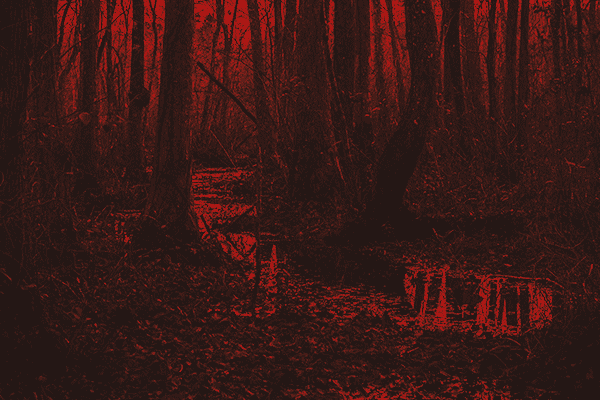| Boreal Herald Tribune | |
| February 1928 | Five Cents |
The Call of Cthulhu |
|
| By Howard Phillips Lovecraft | |
| Found Among the Papers of the Late Francis Wayland Thurston, of Boston | |
Of such great powers or beings there may be conceivably a survival... a survival of a hugely remote period when... consciousness was manifested, perhaps, in shapes and forms long since withdrawn before the tide of advancing humanity... forms of which poetry and legend alone have caught a flying memory and called them gods, monsters, mythical beings of all sorts and kinds...
The Tale of Inspector Legrasse — Part 2
And yet, as the members severally shook their heads and confessed defeat at the Inspector's problem, there was one man in that gathering who suspected a touch of bizarre familiarity in the monstrous shape and writing, and who presently told with some diffidence of the odd trifle he knew. This person was the late William Channing Webb, Professor of Anthropology in Princeton University, and an explorer of no slight note.

Professor Webb had been engaged, forty-eight years before, in a tour of Greenland and Iceland in search of some Runic inscriptions which he failed to unearth; and whilst high up on the West Greenland coast had encountered a singular tribe or cult of degenerate Esquimaux whose religion, a curious form of devil-worship, chilled him with its deliberate bloodthirstiness and repulsiveness. It was a faith of which other Esquimaux knew little, and which they mentioned only with shudders, saying that it had come down from horribly ancient aeons before ever the world was made.
Besides nameless rites and human sacrifices there were certain queer hereditary rituals addressed to a supreme elder devil or tornasuk; and of this Professor Webb had taken a careful phonetic copy from an aged angekok or wizard-priest, expressing the sounds in Roman letters as best he knew how. But just now of prime significance was the fetish which this cult had cherished, and around which they danced when the aurora leaped high over the ice cliffs. It was, the professor stated, a very crude bas-relief of stone, comprising a hideous picture and some cryptic writing. And so far as he could tell, it was a rough parallel in all essential features of the bestial thing now lying before the meeting.
This data, received with suspense and astonishment by the assembled members, proved doubly exciting to Inspector Legrasse; and he began at once to ply his informant with questions. Having noted and copied an oral ritual among the swamp cult-worshippers his men had arrested, he besought the professor to remember as best he might the syllables taken down amongst the diabolist Esquimaux.
There then followed an exhaustive comparison of details, and a moment of really awed silence when both detective and scientist agreed on the virtual identity of the phrase common to two hellish rituals so many worlds of distance apart. What, in substance, both the Esquimau wizards and the Louisiana swamp-priests had chanted to their kindred idols was something very like this—the word-divisions being guessed at from traditional breaks in the phrase as chanted aloud: "Ph'nglui mglw'nafh Cthulhu R'lyeh wgah'nagl fhtagn."
Legrasse had one point in advance of Professor Webb, for several among his mongrel prisoners had repeated to him what older celebrants had told them the words meant. This text, as given, ran something like this:"In his house at R'lyeh dead Cthulhu waits dreaming."
And now, in response to a general and urgent demand, Inspector Legrasse related as fully as possible his experience with the swamp worshippers; telling a story to which I could see my uncle attached profound significance. It savoured of the wildest dreams of myth-maker and theosophist, and disclosed an astonishing degree of cosmic imagination among such half-castes and pariahs as might be least expected to possess it.

On November 1st, 1907, there had come to the New Orleans police a frantic summons from the swamp and lagoon country to the south. The squatters there, mostly primitive but good-natured descendants of Lafitte's men, were in the grip of stark terror from an unknown thing which had stolen upon them in the night.